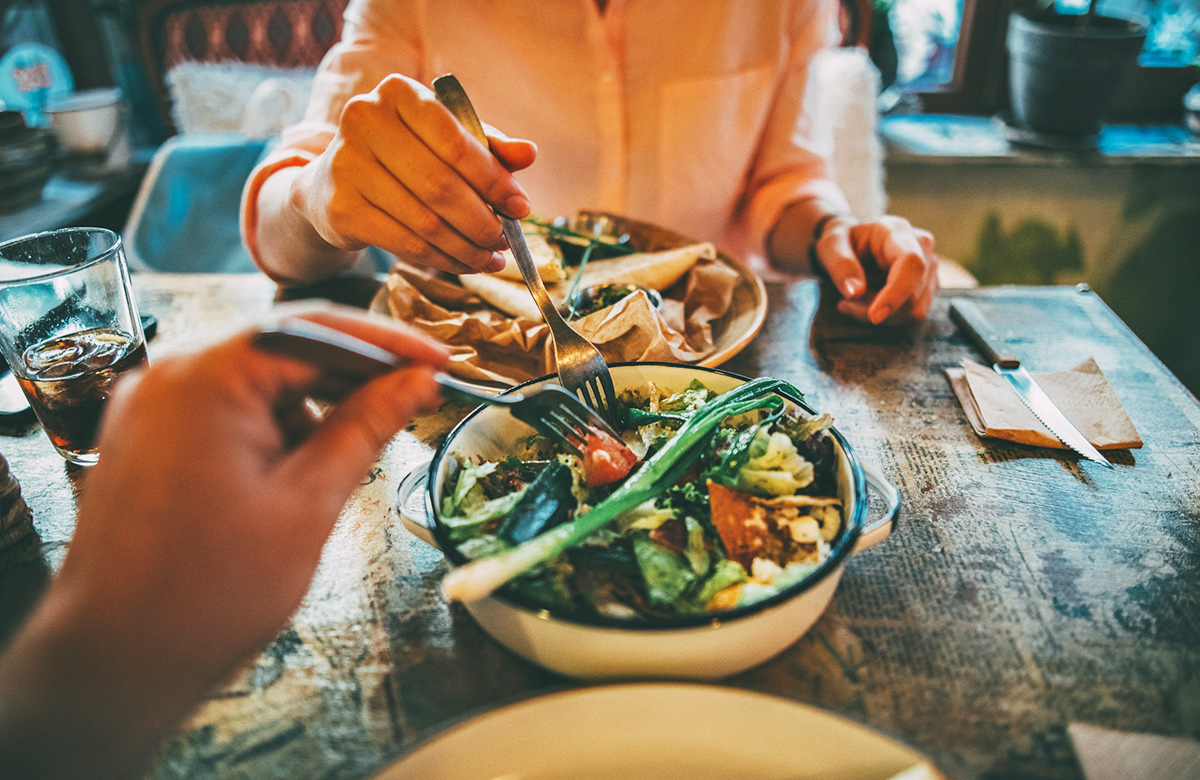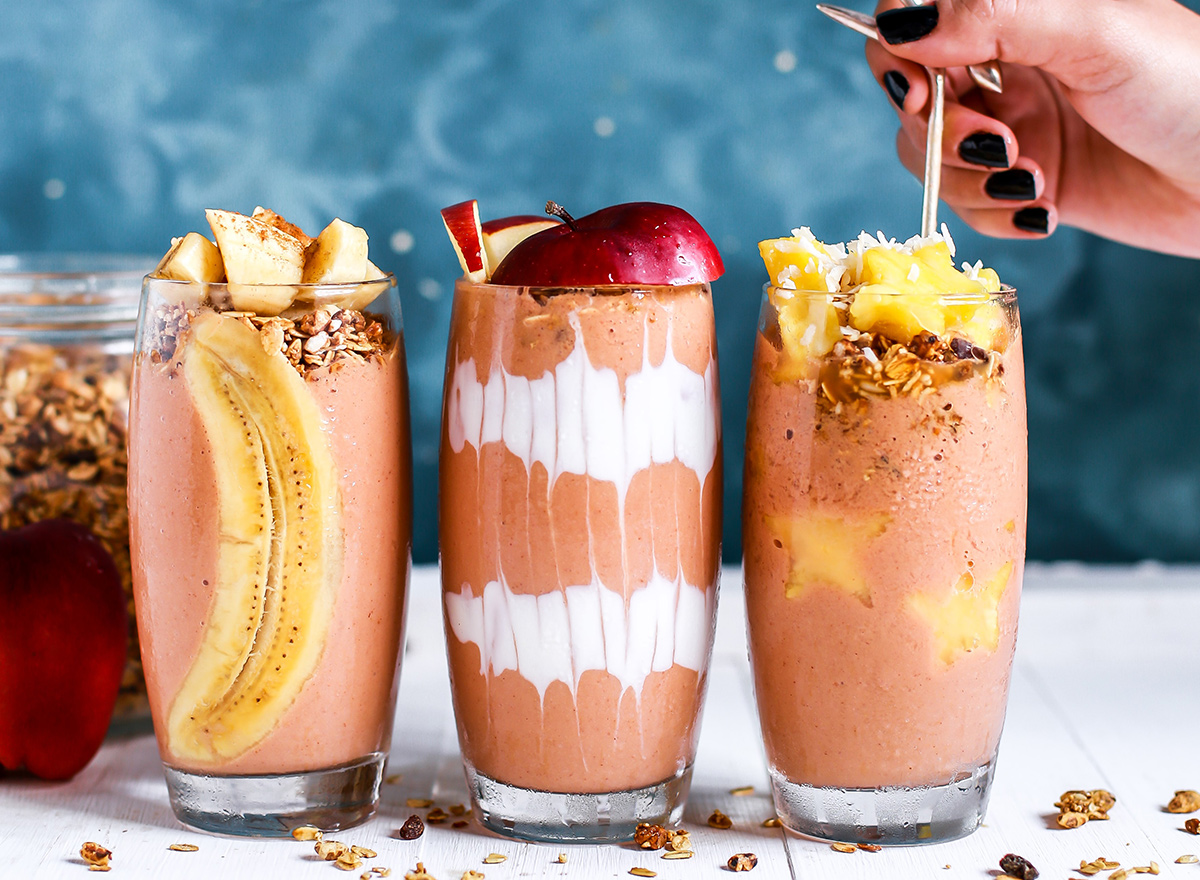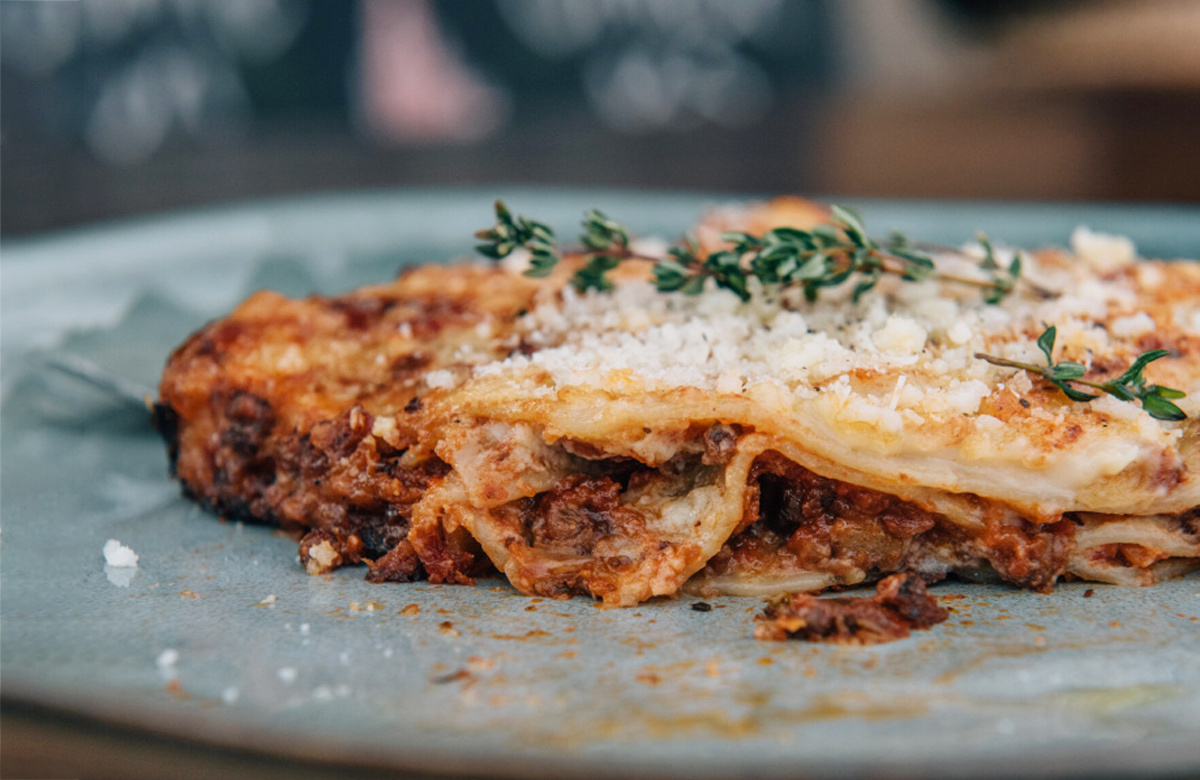
Article

Thinking of going vegan and not sure where or how to start? Here are a few simple ideas from those who’ve walked the path before you!
Whether you’re feeling a little veg-curious, or you’re ready to launch gung-ho into veganism — transitioning to a plant-based diet isn’t something that needs to happen overnight.
Perhaps you’re already vegetarian, lactose-intolerant, or you naturally don’t eat many animal products — in that case, you might be able to comfortably make the transition quicker than most.
But if your diet consists mostly of meat, poultry, eggs, cheese, cow’s milk, and other dairy products, just know that it is okay (if not, optimal!) to take weeks or even months to adopt a fully plant-based diet. Because realistically, changing your diet away from foods you’ve been eating your entire life isn’t always going to be coconuts and bliss bowls. Not immediately anyway 😉
So, a few tips:
If you’re tempted to go ‘cold-turkey’ perhaps take a look at our new year’s resolutions! 80% of them are scrapped by February. Change can be daunting. You wake up one day and because it’s a new year, you expect yourself to take a sharp turn onto a new path paved with ambitious goals you’ve never attempted before. No wonder we’re tempted to stray. And a plant-based diet can be just as hard to maintain if we approach it this way.
Research indicates that the more gradually people transition into veganism, the more likely they are to stick to it. Makes sense, right? Imagine that you’ve never exercised but decided today that you want to become a fitness wizard. Are you going to hit the gym for daily two-hour sessions starting tomorrow? Probably not, if you want to form a long-lasting habit. Instead, you might start with 20 minute workouts a couple times a week, and build up to that fitness-wizard-level over a period of time. Gradual change is simply more sustainable, because it’s easier to make little changes than massive ones.
So what does this look like, I hear you ask? Well it could be anything from Meat-free Mondays to Meat-free weekdays. It could be taking one animal off your plate at a time — for me that first animal was cows, after I saw the reality of Australia’s live animal export trade 🙁 There’s no right or wrong — the key is to follow Frank Sinatra’s advice and do it your way.

Take note that plant-based diets and healthy eating aren’t always the same thing. You can eat “plant-based” and live off Oreos, greasy potato cakes, refined sugars, white bread, and French fries (5 course degustation anyone?). If that sounds perfect, then all power to you! But if health is a motivating factor for you seeking out plant-based foods, we recommend limiting your consumption of overly processed things — of which there are plenty of tempting vegan options!
At the other end of the spectrum — you cannot survive on apples and celery sticks alone. Under-eating is a common issue when you’ve dived into veganism headfirst and haven’t taken the time to read up on what a healthful, balanced plant-based diet looks like.
Plant-based foods, particularly fruits and veggies, are often high in fibre but low in calories (great if you’re watching your weight, but it can mean you need to eat more to feel full). So first things first: make sure you’re not lowering your caloric intake below your normal daily intake.
Secondly, make sure your meals are full of nutrients — from all your essential vitamins and minerals, to fats, oils, omegas, proteins, and iron! We recommend well-rounded, satisfying meals made up of leafy greens, vegetables, fruits, nuts, beans, whole grains, sprouted grains and legumes! Check out The Plant Plate by Virginia Messina, MPH, RD, for a visual guide and some helpful pointers.
We often hear stories from people who have gone vegan and suddenly feel amazing: buzzing with energy, brain fog lifted, sleeping better, digestion issues gone, the list goes on … Doesn’t that sound like the dream?
Well, that’s not necessarily the case for everyone. If you drastically change your diet overnight, you may begin to experience some detox symptoms.
While detoxing is ultimately a good thing, it can feel unpleasant if you’re suddenly experiencing headaches, irritability, fatigue, bloating, or discomfort. Taking ‘baby steps’ means adopting gradual, sustainable shifts that your body can get used to one at a time. This slow process will allow for a sort of detoxification process over time, without throwing your bodily systems for a loop.

Maybe it’s midday in the office; you haven’t eaten, and a couple co-workers have just picked up burgers for lunch. Or maybe you’re at a party and all your friends are splitting a pepperoni pizza that smells a heck of a lot better than the hummus you brought for yourself.
You can’t always control your environment — and your environment is likely to bring on cravings for familiar foods! Cravings are not only normal, they are valid. Especially when you haven’t allowed much time and space for your taste buds to adjust to your new way of eating — or if you’re simply not aware of delicious plant-based substitutes (yes veggie burgers and plant-based pepperoni do exist!)
Gradually introducing plant-based meals — or even individual ingredients — into your diet gives you time to learn what plant-based foods and flavours you like best so you’ll find new foods you love just as much as some of your previous favourites. Chances are, you spent years (if not decades) learning your old taste preferences and finding what foods tempted you the most. Give yourself a little time to do the same in the world of plant-based cuisine.
Before you know it, you’ll likely prefer the plant-based options, and the way you feel after eating them. Those cravings you may experience in the beginning will soon be replaced by longings for all the delicious plant-based food you’ll be enjoying! And as your friends reach for another slice of that pepperoni pizza, you can whip out your own plant-based ‘meat lovers’ pizza, which I might argue, is even more delicious!
If trying a plant-based diet feels forced or feels like you need A LOT of willpower to stick to it, then you might be doing it wrong (I know I know, I said there was no right or wrong, stick with me here 😉 )
It’s a common misconception that veganism is about cutting out when in fact it’s about adding more or simply substituting. When I went veg, I met vegetables that I never knew existed (hello eggplant and kohlrabi!), my spice rack ballooned from about 5 to 50, and I discovered that there are many more beans than the Heinz variety! When you expand your thinking about food, it opens up a whole new — and delicious — world of possibility, flavour and satisfaction.
If you need to find a replacement for any of your favourite dishes — there are heaps of recipes out there for DIY meals omitting animal-based ingredients. There are also delicious plant-based alternatives to all your favourite animal-derived ingredients. Nowadays you can find vegan versions of pretty much anything: from chicken nuggets to smoked salmon, from bacon and eggs to rich lasagnes — you name it, you can find it!

If committing to one plant-based meal a week is where you’d like to start — then amazing! Remember that any step, big or small, makes an impact. Maybe meat-free Mondays sound doable for you, so you start your weeks off with some plant-based cooking experiments. Before long, it’ll seem easy to eat plant-based a couple of times a week.
My best piece of advice: Gradually start lessening your consumption of animal products while simultaneously increasing the number of plant-based foods in your repertoire. Then celebrate each new find! This is a time of exciting discovery (especially for your taste buds). You can also expect tremendous growth in your health and wellbeing.
If you’re finding it challenging, that’s okay. Don’t be too hard on yourself during your veg-curious explorations. Consider it an adventure that unfolds over time, giving yourself more time and space to see how your body reacts to the changes you’re making. After all, you know now that by easing into this exciting lifestyle change, you have an even better chance of keeping it up long-term.
Finally, remember that your food choices have an immeasurable impact on not just the health of your body, but the health of the planet and on the other sentient beings who share it with us — so thank yourself for doing your bit to create a kinder world! ![]()

Lisa’s love of food is only trounced by her love of animals. So when she announced she’d gone veg, her Hungarian grandmother exclaimed with exasperation, ‘oh Lisa, I knew this day would come’ … before promptly frying up a plate of cauliflower schnitzels. It turns out – from Goulash to Paprikás to the family’s favourite Hungarian sweet treats – plants really can be the centrepiece of any meal!